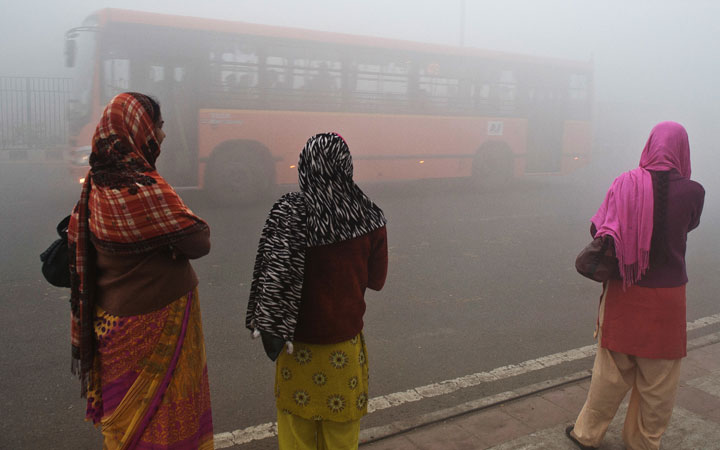NEW DELHI – Prime Minister Narendra Modi on Monday blamed the changing lifestyles that have come with India’s economic development for rising pollution levels that have given the country some of the world’s dirtiest air.

With his government rolling out a new Air Quality Index to 10 of the nation’s cities, Modi urged Indians to curtail waste and conserve resources even as they become wealthier, in order to prevent an environmental catastrophe.
“Until we focus on our lifestyle and get the world to focus on it, we will not succeed despite all other measures being taken,” Modi told state environment ministers in New Delhi.
“It is difficult to convince the developed nations about this,” he added, saying that India should set an example.
Air pollution kills millions of people every year, including more than 627,000 in India, according to the World Health Organization.
India last year announced its plans for the Air Quality Index, releasing a draft proposal in October based on New Delhi’s small network of air quality monitors. Experts have criticized New Delhi’s readings as erratic and unreliable, calling for more transparency and rigour in the data.
They also said using an Air Quality Index in 10 cities was a welcome step, but still far below what is needed. The WHO puts 13 Indian cities in the world’s 20 most polluted – with New Delhi deemed the filthiest – while pollution levels even in the countryside are often several times above what’s deemed safe.
Much of India’s air pollution comes from coal-fired power plants, crop burning, domestic cooking with firewood or cow dung, and vehicles burning diesel fuel.
Black carbon, which constitutes most of the tiny particulate matter known as PM2.5 that can lodge and fester in human lungs, is also blamed for up to 20 per cent of global warming.
- Suspect in killing of temple leader Hardeep Singh Nijjar got student visa in days
- Prince Harry won’t meet with King Charles during Invictus visit in London
- Video of Ole Miss frat member making ape noises at Black protester sparks outrage
- Trump classified documents trial set for May start now postponed indefinitely



Comments